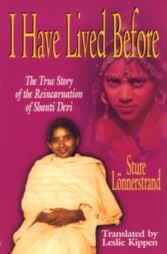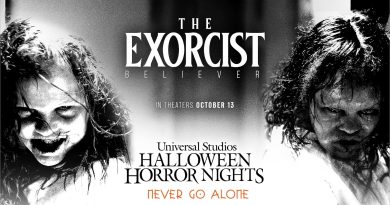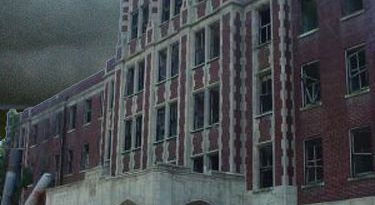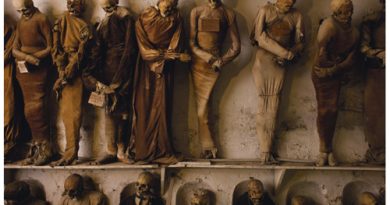Reincarnation of Shanti Devi – THE LIFE BEYOND
In 1930, aged 4, Reincarnation of Shanti Deva from Delhi, India, told her parents that she had once lived in a place called Muttra (now known as Mathura), that she had been a mother of three, who died in childbirth, and that her previous name was Ludgi. Because the girl continually related the story, her parents investigated. It turned out there was a village called Muttra, and that a woman named Ludgi had recently died there. They took Shanti to the village where she began to speak the local dialect and recognized her previous-life husband and children. She even gave twenty four accurate statements matching confirmed facts about Ludgis life. An impressive feat for a four year old.
One of the earliest and best-known documented cases of children who claim to recall a past life, that of Shanti Devi (studied by K.S. Rawat), also includes statements about her experiences after death and before her reincarnation.
Shanti Devi
In the 1930s when the idea of successive lives was not shared by the educated elite, the case of a 9-year-old girl Shanti Devi of Delhi attracted much public attention throughout India and soon its reports travelled far and wide in the entire world (Rawat, 1997). For the first time in history, a committee of fifteen persons, including journalists, was constituted to investigate the veracity of the statements made by the girl, claiming to be a Chouban (member of the Choubey family) of Mathura in her past life. Mathura, a town 145 kilometers from Delhi, never visited by the girl or her parents. Spiritualists and rationalists, scientists and laymen visited Delhi and Mathura either to investigate dispassionately or to support their religious beliefs or to entirely expose what they saw as a hoax. One such critic, Sture Lönnerstrand, came all the way down from Sweden to expose the fake case. After completing his investigations he issued the statement: This is the only fully explained and proven case of reincarnation there has ever been. (Hunt, 1971.)
Shanti Devi was born in a middle class family of Delhi on December 11, 1926. She was just like any other ordinary girl, excepting that till the age of four she did not speak much. From the age of four, when she started speaking, she ceased to be an ordinary girl and her behaviour changed a lot. She started talking about her husband and children. She would repeatedly describe her home and her husbands shop at Mathura. She said she was a Chouban (member of the Choubey family) of Mathura and her name was Lugdi. She would talk of the food and clothing she enjoyed in a former life. Her parents ignored her, but she persisted. Her parents got puzzled but she insisted on a visit to Mathura. For five years her parents tried to distract her mind but to no avail. At last, a sympathetic granduncle came to her aid. He asked her to give him the name and address of her husband at Mathura. A friend, Lala Kishan Chand, wrote a letter to the address given by the girl. Soon a reply came, attesting that the statements of the girl were substantially correct. It was suggested that a relation of Choube Kedar Nath, Pt. (Pundit) Kanji Mal of Delhi might be allowed to interview the girl. An interview was accordingly arranged. Shanti Devi is reported to have correctly recognized Pt. Kanji Mal as the younger cousin of her alleged husband. She gave convincing answers to the questions put to her by Pt. Kanji Mal. After this conversation, he wrote, I was convinced that the girl was really my own relation, now personating in another body. On November 13, 1935, Kedar Nath Choubey, along with his third wife (he had one prior to Lugdi) went to Shanti Devis house in Delhi. Shanti Devi recognized her husband and expressed motherly affection towards her son Nitlal who was now her elder. She burst into tears and sobbed for about an hour. Late at night Kedar Nath Choubey took Shanti Devi in a separate room, and put her some intimate questions. He was satisfied by her answers and moved to tears.
Shanti Devi continued insisting on a visit to Mathura. She added many more details about her house and other events related to her former life. On November 24, 1935, she was taken to Mathura by the committee of fifteen eminent persons appointed on the advice of Mahatma Gandhi to investigate the veracity of the claim made by the girl. She was: kept under close observation and all her movements and remarks were carefully noted by the committee. Shanti Devi is reported to have recognized a number of persons, answered all the queries put to her and spotted out the significant places connected with her past life.
In February 1936, Shri Bal Chand Nahata, a rationalist and staunch disbeliever, interrogated Shanti Devi and some related persons. He published his report in the form of a small booklet in Hindi entitled Punarjanma Ki Parayyalochana. He concludes his brief study by saying: Whatever material that has come before us, does not warrant us to conclude that Shanti Devi has former life recollections or that this cases proves reincarnation. (Nahata, undated). Dr. Indra Sen (1938), an eminent philosopher, soon wrote a complete article in response to this book. In this, he wrote, It is strange to note that on such small material thus gathered he has confidently written the report and drawn the conclusion and published them in the form of a book. Dr. Indra Sen had also made a close study of the case. He took Shanti Devi to Mathura and Brindaban and tested her memories on new points. In April 1939 he secured the cooperation of a hypnotist and, attempted to get her recollection of her former life in a hypnotic state. Dr. Sen wrote, I am confident that Shanti has certain memories which are not of here and now.
In July 1939 Mr. Sushil Bose interrogated Shanti Devi and her father in Delhi and Kedarnath Choube at Mathura. He has reported the interviews in complete details, but has not expressed his own opinion or comments about the case. Bose also interrogated Shanti about her experiences between her death in her former life and her reincarnation into the present one (Bose, 1952). We shall be coming to that soon.
In 1961 Dr. Ian Stevenson (1974a, 1974b, 1977, 1978, 1983, 1987) also studied the sources for this case. He writes that the accounts available to me indicate that Shanti Devi made at least 24 statements of her memories which matched the verified facts.
One of us, Dr. K.S.Rawat, interviewed Shanti Devi on February 3, 1986, and October 30, 1987. He had recorded his first interview with Shanti Devi on an audiocassette and the second and third meeting was recorded on a videocassette.
Shanti Devi about the Life Beyond
Shanti Devis case is significant on various counts. But in the present context its importance lies in the fact that Shanti Devi narrated considerable details about the interval between the moment of Lugdis death and her subsequent rebirth.
Scores of articles, monographs and books relate these details, but we shall present them only from the sources we consider authentic. These are:
Mr. B.C Nahatas booklet. The report of the hypnotic test.A monograph by Sushil Bose.
Audio recording of the interview with Shanti Devi. Video recorded interview with Shanti Devi.
Mr. Nahata interrogated Shanti Devi on February 22, 1936. The relevant portions (translated from Hindi) are as follows:
Question: Tell us: what did you experience at the time of death?
Answer: Smoke. Three men wearing yellow clothes. I went with them till the Third plane. To the fourth I went alone.
Q: What did you see there?
A: There are saints (Sadhus) at all the three places.
Q: What did you see on the fourth place?
A: Krishanaji was sitting on a throne. (The suffix ji expresses veneration.)
Q: What else was there?
A: In front, there was a saint.
Q: Did he have any beard or long plaits of hair?
A: He had a white beard. There were many saints.
Q: What else were there?
A: Krishana ji had a paper in his hand and was reading from it.
Q: What was he reading?
A: I dont know about other thing, but I know he read out House Number 565 (The Number of the house Shanti Devi is residing these days is 565)
Q: What happened then?
A: I returned to a black cell.
Q: Were those three persons with you while returning?
A: No.
Q: What was there on your way?
A: Staircases of Gold and silver.
Q: Did you remain hungry in the dark cell?
A: No, I didnt feel any hunger or thirst.
A hypnotic test was conducted on April 13 1936. The hypnotist was Mr. Jagdish Mitra. Dr. Indra Sen was present during the sitting. Prof. Begg took notes. The relevant portions from prof. Beggs report are as follows:
Girl: Lugdi is dead. Now Lugdi is getting up from her bed.
Hypnotist: Whether Lugdi is getting up or her soul? The body is already dead.
Girl: Yes, the body is on the bed. Her soul is getting up. Four men wearing yellow underwear are standing. They have thrones also. And there are three saints in blue, black and white clothes. (I must admit that this position of what Lugdi said was not clearly audible to me).
Girl: Now Lugdi has reached God. She had a chit [official document of an agreement] in hand. She is showing the chit to God. Bad people are crying
Hypnotist: What is Lugdi doing now?
Girl: Now Lugdi is coming down stairs of gold and silver now.
Mr. Sushil Bose interrogated Shanti Devi on July 25 and 26 1936. His monograph, entitled: A case of Reincarnation, was published in 1952 and is in English. Mr. Sushil Bose does not mention the language in which the interview was originally taken (presumably it was in Hindi, because Shanti Devi, whose mother tongue was Hindi, could not converse in any other language) nor do we know the manner in which Mr. Bose took notes of the interviews. The relevant portions from his monograph are as follows:
Question: Do you remember how you felt at the time of death?
Answer: Yes, Just before death I felt a profound darkness and after death I saw a dazzling light. Then and there I knew I had come out of my body in a vaporous form and that I was moving upwards . I saw that four men in saffron robes had come to me All the four seemed to be in their teens and their appearance and dress were very bright They put me in a cup and carried me . It was about nine or ten inches abroad and rectangular in shape
Q: Did you not ask them any thing about the river?
A: When asked they said that those who aspired for a higher life sincerely, but who had committed fleshly wrong in this life, were dipped in the river before moving any higher. They took me to the fourth place.
Q: Is there any place to live there at night?
A: No, there are no houses or dwelling places. All is open space. Arriving on the fourth place I saw that there are still more saints, brighter in appearance then those on the third plane. And in the midst of them, seated on a huge dazzling throne was lord Krishna [one of most popular Hindu gods]. He was showing each person a record of his activities on earth, good and bad, and accordingly what would be his condition in the future.
Q: What happened then?
A: Then those persons, who had carried me, took me to a place like a staircase where it was very bright. I was seated there.
Q: Is there any thing like darkness or light there?
A: No, nothing like light or darkness. It was all full of light. It was all day and light, very mild, and smoothing and enlivening light.
Q: Did you have a sense of time? Can you say how long you stayed there?
A: No, I cant say how long I remained there. I had no feeling of time.
Q: Did you feel there was any higher plane above the one where you were?
A: Yes, I observed and felt there was a higher place but I cant say thing about it. I in the fourth plane, near the throne of Lord Krishna, I saw one with a long beard.
Q: What finally happened?
A: After remaining on the staircase for a long time I was taken to a dark room, from all sides of which a very bad smell was coming out. I was made to lie down in a clean place there.
Q: Did you feel any pain at the time of death? Did you see any thing at that time?
A: I did not feel any pain. I simply passed into a state of unconsciousness, and at that very moment I saw very brilliant light.
Along with Dr. Stevenson and Dr. Pasricha, Dr. Rawat interrogated Shanti Devi at her residence in Delhi on February 3, 1986. The interview was in English. The relevant portions are as follows:
Shanti Devi: Before my death, I saw dazzling light. . Very dazzling. Four persons, very handsome boys, with large yellow garments. They came with a square shaped vessel and sort of roomal [handkerchief] or whatever you call it. All of a sudden, light came out from the body that I was and they put this light into that vessel and took me up, up and up
Then again these four persons came and put me in the vessel. Then they descended me a very bright staircase and then I came in a cell-dark cell.
Dr. Rawat: Who was looking to your action in this life as Lugdi Lord Krishna or Chitragupta? ([In Hindu belief, the recorder of the vices and the virtues of men. Chitragupta is the judge who sends men to heaven or hell.]
Shanti Devi: Chitragupta.
Later, on October 30, 1987, when Dr.Rawat again interviewed Shanti Devi (this time, alone), she mentioned a river and the appearances of the souls present on the fourth plane, in addition to the various details she had given previously. This interview was recorded on a videocassette:
Shanti Devi: They took me up. There was a river. It was quite clean and pure like milk.
About the appearance of the souls she said: they were like flames in lamps.
From the accounts given above, some salient features emerge:
No pain at the time of death.
Experience of profound darkness at the time of death.
Seeing a dazzling light.
Coming out of the (physical) body in vaporous form.
Coming of three or four young persons wearing saffron or yellow robbes.
Put in a square or rectangular vessel.
Feeling of going up and up.
Seeing an extremely beautiful garden on the way up.
Coming across a river.
Passing through three planes, ultimately taken to the fourth.
Absence of an open space on the fourth plane.
Absence of any sense of time at the fourth plane.
Presence of Saints on all the four planes.
Presence of a bright (Godly) entity on the fourth plane.
Reading of a review of the actions performed in earthy on the fourth plane.
Reading of a review of the actions performed in earthy life by this godly entity.
Put on a staircase of silver (and gold), which was very bright, for descending back, by the same persons who took her up.
Coming down to a dark cell
No feeling of hunger or thirst in the black cell.
Although in recent years a new wave of near death experiences has been stimulated by the publication of Dr. Raymond A Moodys books Life After Life and Reflections on Life after Life in 1977, persons in many cultures have related similar experiences over the centuries. Frederick H. Holck (1978) has found numerous examples of experiences similar to NDEs in religion and folklore. He discovered four similarities between the new wave of NDEs and previous reports:
The experience of leaving ones body accompanied by the sense of having a spiritual body.
A meeting or reunion with departed friends and ancestors.
An experience with a light of dazzling brightness.
Discovering a dividing line or border between both worlds of experience.
In the reports of Shanti Devis narration we do not find any mention of a meeting or reunion with departed friends and ancestors, but we do come across her experience of leaving her body in a vaporous form, and of crossing this world and ascending to the world beyond. The experience of a light of dazzling brightness has been stressed unambiguously. Her experience of Darkness immediately after death may be compared with the experience of a dark tunnel narrated by some subject having a close brush with death. Similarly, the return to the dark cell before birth may signify entering the womb or the mother.
Source : http://www.prebirthexperience.com



